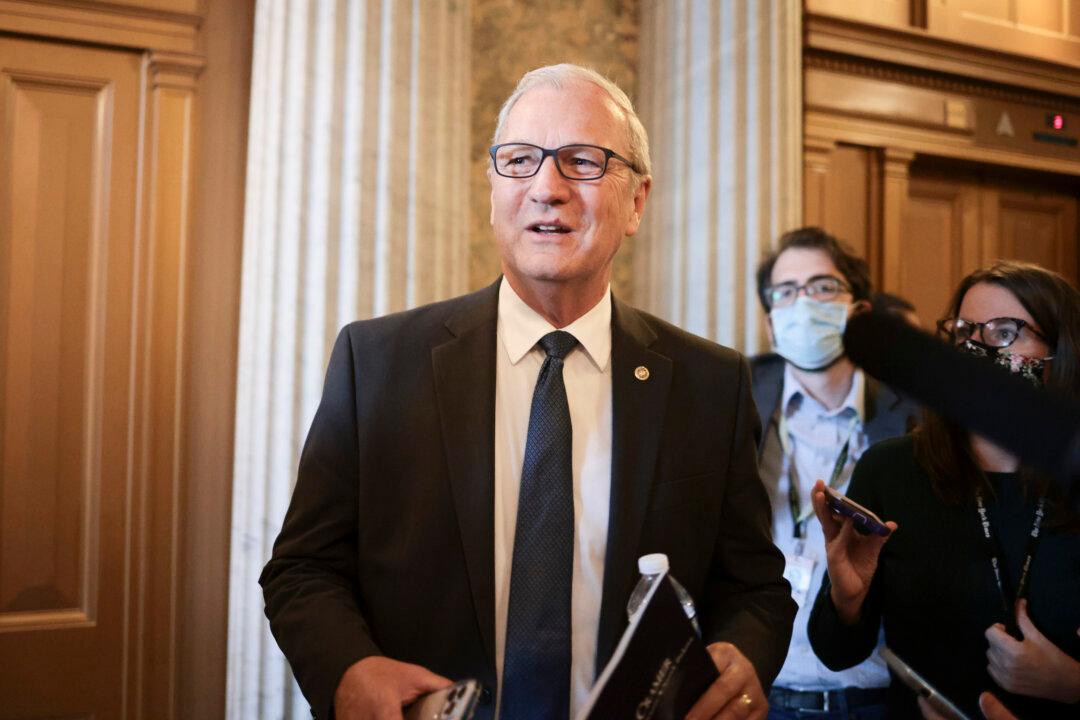Sen. Kevin Cramer (R-N.D.) told reporters on Sept. 6 that he isn’t concerned about the possibility of a federal government shutdown, because he’s already “convinced it’s going to happen” since Congress is deadlocked on a new budget.
The North Dakota Republican also said the dire prospect of a federal budget deficit of $2 trillion or more, according to a Committee for a Responsible Federal Budget (CFRB) projection, doesn’t surprise him, either.






